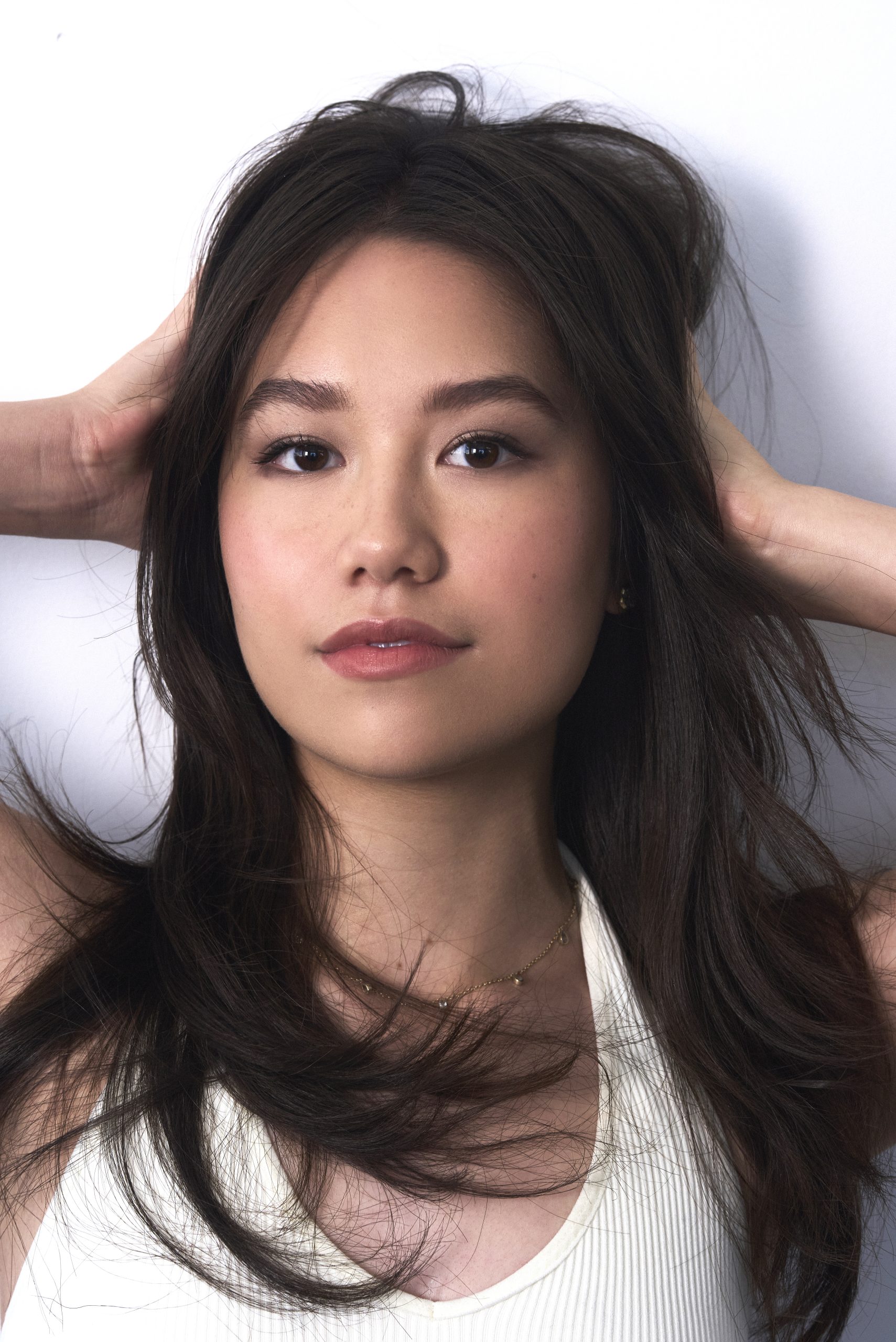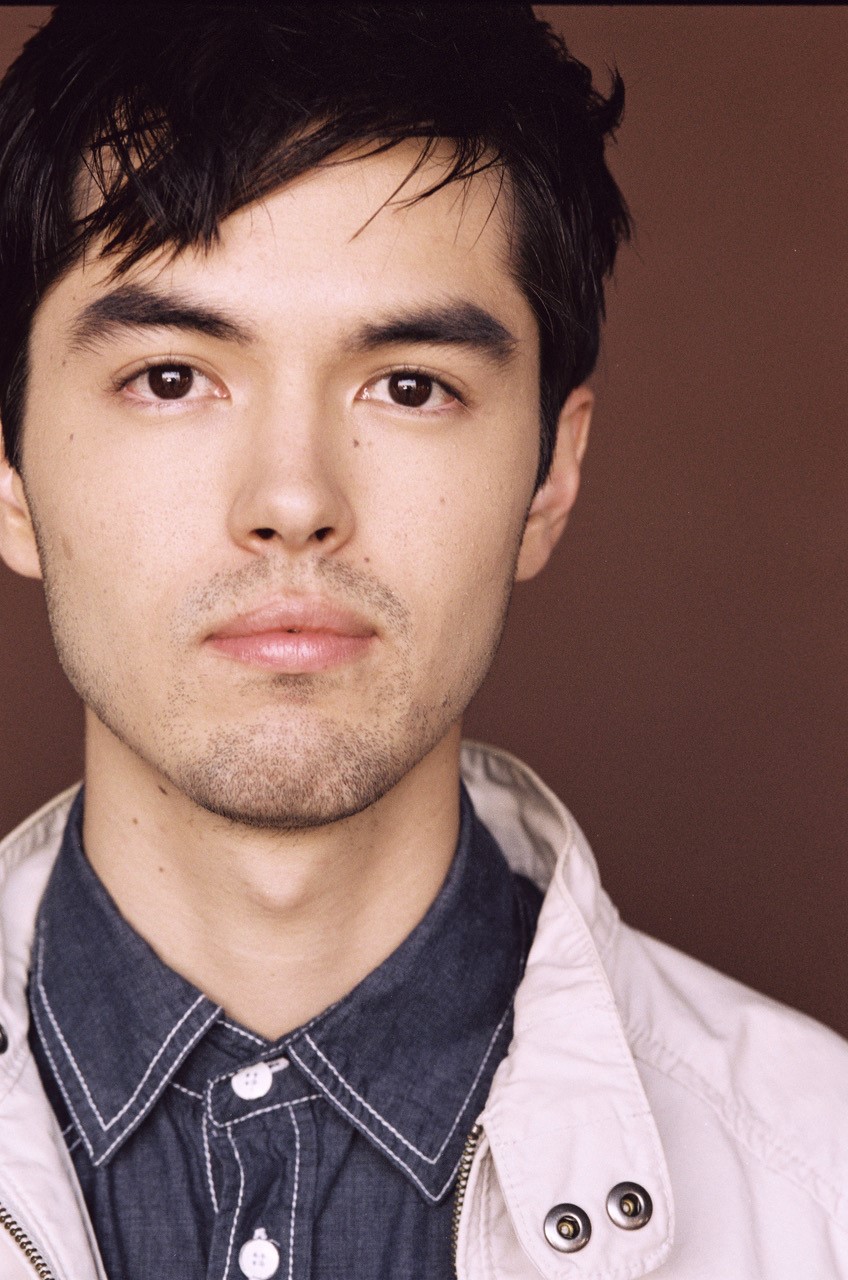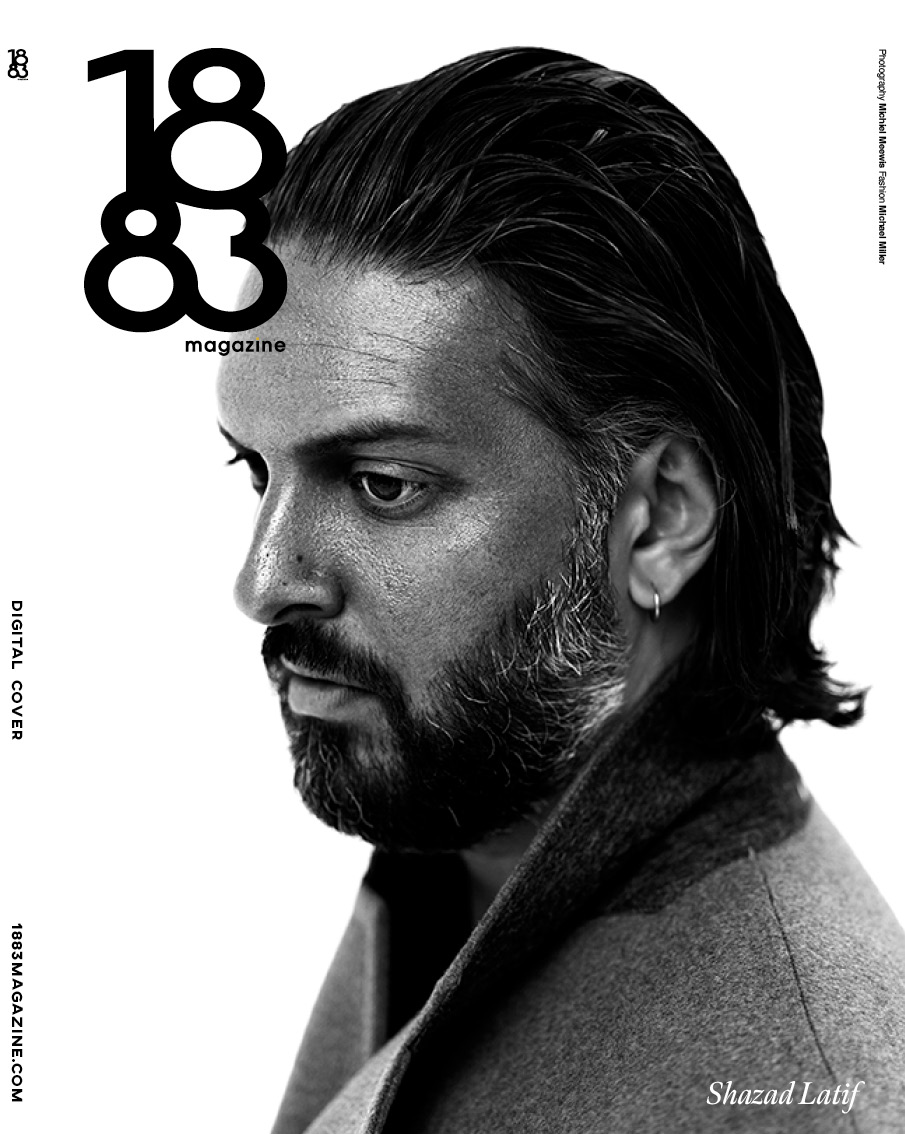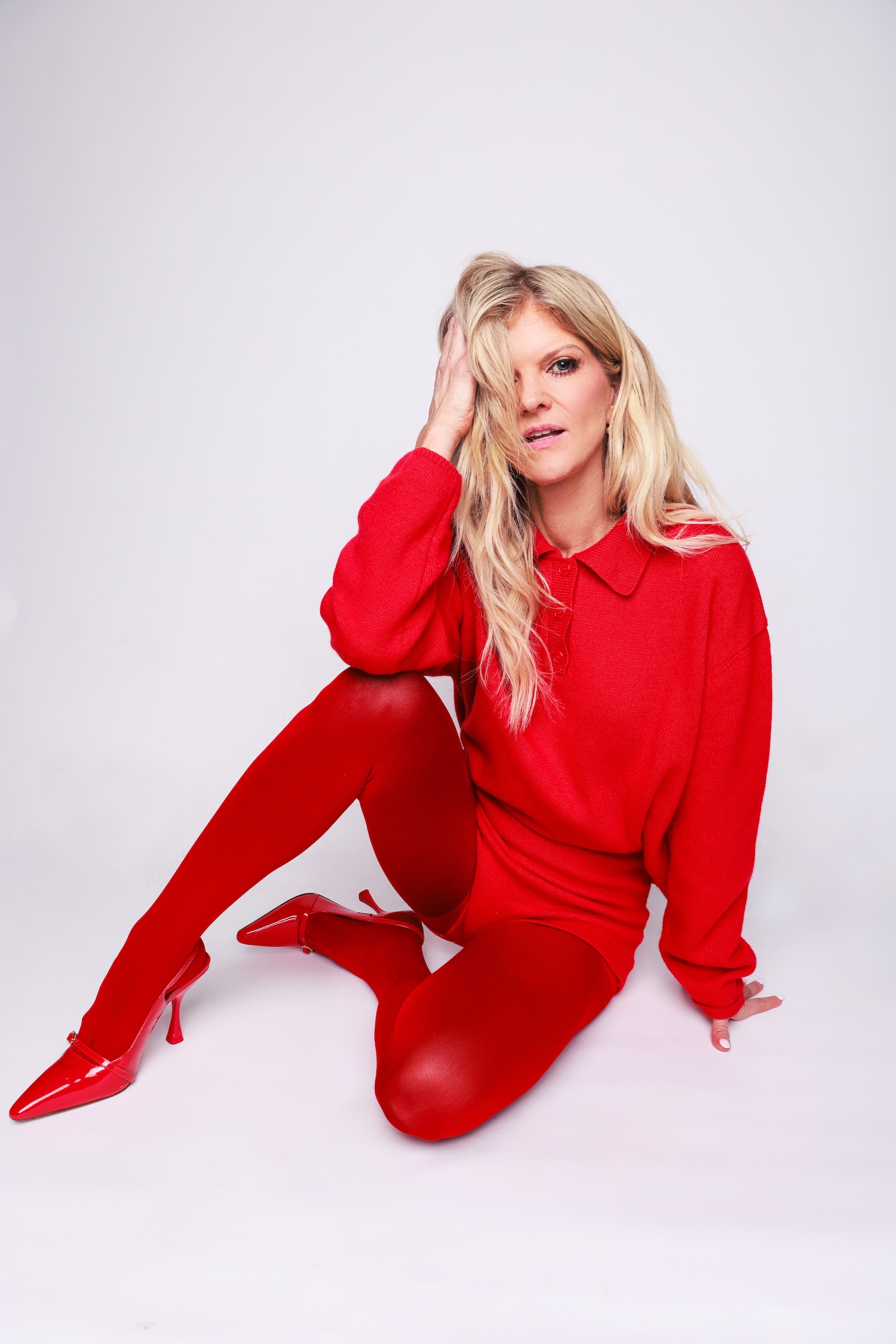Whenever I’m lucky enough to catch a show on the West End, I’m always reminded of a quote by American actor Terrence Mann: “Movies will make you famous, television will make you rich, but theatre will make you good.” It’s a sentiment that many actors, big and small, attest to — touching on the importance of grinding away at something for months and living alongside a character can completely change your ability as an actor. Theatre shapes young actors and moulds them in a way that allows them to explore different facets of themselves and take what they’ve learned into the next stage of their career, whether that be on stage or onscreen. And that’s exactly why so many audiences were — and still are — utterly gripped after seeing rising actor Louis McCartney‘s debut on the West End in Stranger Things: The First Shadow.
When I chat with Louis McCartney, it’s been about eight months since he first took the stage in Stranger Things: The First Shadow as Henry Creel. For audiences of the beloved show, Henry’s name is synonymous with the wicked Vecna, a humanoid being with psychic powers who has been causing terror across Hawkins and the Upside Down. But McCartney’s version of the character provides new insight into the monster audiences think they know, bringing an unforeseen naivety and vulnerability to a character that many might’ve already written off as the villain. Although McCartney himself would chalk most of that up to Director Stephen Daldry direction and writer Kate Trefry, it’s hard to imagine anyone else in the role as Creel that would bring the same depth and deftness that McCartney can.
The Belfast-born, London-based actor got the role after an open casting call and an “extensive” workshopping process, he tells me. After seeing the show during previews and then again a few weeks later after opening night, it was impossible to not take your eyes away from Louis McCartney. Balancing eerie, earnest, and empathetic, McCartney completely embodies Henry and has the audience in the palm of his hand for the whole show, bringing us along as Henry navigates his own traumatic coming-of-age story which, yes, includes becoming who we now know as Vecna.
Now eight months have gone and McCartney seems to be carrying himself differently. It’s what eight shows a week would do to anyone, but the physical demands of playing someone as troubled and traumatized as Henry Creel has helped shape McCartney as an actor and a person, unveiling new aspects about himself that he says helped him uncover new things about himself and the man he’s becoming. Equal parts eloquent and intentional, McCartney delivers every response with the perspective of someone who should be 20 years into his career, not just 20 years old. All of the things he’s learned through the role — both about the character and about himself — he says, just helps inform his portrayal and bleeds into the performance. And for those of us who have been lucky enough to have walked through the Phoenix Theatre to see the show for ourselves, we all feel like we’re in on a little secret the rest of the world doesn’t know yet: Louis McCartney is on his way to do big things.
1883 Magazine’s Kelsey Barnes sits down with Louis McCartney to chat about undertaking the role of Henry Creel in Stranger Things: The First Shadow, what it’s been like to develop both as an actor and a human through this project, and more.
Louis, if my research is correct, your first role was actually an extra on Game of Thrones, which I feel must’ve felt like a big experience at the time since it was such a huge set and show. Does it feel like you’ve grown a lot since then given how your career has progressed since?
Oh yeah, I’ve grown in the fact that my dad is no longer calling himself a chaperone so that he can get on set [laughs]. I think in the last year, or even the last six months with Stranger Things, I’ve really grown up. I was flying back and forth for rehearsals and filming Hope Street at the same time and everything was hectic. I had just finished school and, at that age, it was almost like I was starting to be somebody else. Then, I got the opportunity to come to London which, coming from Northern Ireland, always seemed like the goal. Game of Thrones was really cool, it was one of my first proper auditions and they brought me in and described how we’d all have to scream at a dragon-blowing fire.
The scream that would eventually help you with Stranger Things: The First Shadow, I’m sure [laughs].
[Laughs] Yes, that blood-curdling scream. My mum came over recently to see the show [Stranger Things: The First Shadow] and she looked at me and said, “Yeah, you’ve grown.” I think, for parents anyway, that it must be such a weird experience to see their child like that. I think in the industry, you’re forced to grow up a little bit faster than maybe other professions. It is tough and taxing your body if you want to do a good job. It’s a tough job and I think your parents can see that. So that was kind of rewarding for me to hear that I’ve grown like that.
Has it been interesting for you to watch your own growth over the last six months or so? I’ve seen the show twice — once during previews and another later on — and I feel like everyone has really grown into their roles.
Yeah, the characters have grown tenfold. Patrick Vaill, who plays Brenner, and I were talking about this recently. I looked at him and I just mentioned how long it’s been since we started in November and he said, “Yep, and it’s still fun.”
It’s even flown by for me! I can’t believe it’s already been eight or so months since previews.
It all really stems from Kate Trefry [writer] who has written this visceral show. There is the Stranger Things tone that we have to hit, but there’s this underbelly that we work on which is the vulnerability of every relationship or Henry and Brenner which, for him, is not so much a psychopath and doctor relationship. One time Patrick said, “At any point, I can be the dad and you can be the son or you could be the dad and I could be the son.” I love that because we do nurture every single performance. I have so much trust in this guy. It’s the first time I’ve been able to experience trust like that as an actor. I know that I could fuck up and he’ll catch me.


During previews, the show can change somewhat on a whim — whether that be a script change or something more physical on set. What was it like working through that process with a show that was constantly evolving and adapting?
It keeps you on your toes. We had pages of the script that were locked in a cabinet overnight. We didn’t have access to the material which was the first time I’ve experienced that, we had to trust our memory and gut. When you’re in a rehearsal room, everything’s on the line. But because the process was so long, we had no idea what was going on up until the wire. You’re working through these pages and they’re just getting better and better each day because you’re all working collaboratively and there’s no ego. Then you finish and they say, “We’ll see you tomorrow,” and they take away all your material, your precious babies, your little love notes.
The thing you lean on, like a crutch.
Yeah, you want to look at them over and over. It was almost freedom, in a way, to not have access because then it was new and fresh. That’s what happens every night on stage: I have to trust that I can’t hit that amazing performance last week because that is just not true, but I can trust that whatever I do is enough. That all started back in the day of tech rehearsals where it was just one foot forward; there was no restarting.
I read your father really encouraged you to become an actor — you wrote monologues and acted them out. What was the process like behind writing and acting out your own work?
We really connected over the monologuing because my dad’s a screenwriter. With acting, my parents realized that it looked like it could be something and I loved it. I was 14 and we thought it would be a way for me to get an agent. Personally, I think it’s all about vibrations and what you can do for yourself. My dad’s crazy and comes up with crazy ideas, so we thought we’d make a showreel of actual stories. We’d write them into shorts and we’d go into my tiny room, prop a lamp up on my dresser and have this labyrinth of wires and he’d push record on the camera. We did 17 of them, most of them are gone now though [laughs]. My dad’s a tough critic, and I think that is the thing I love most about him. He didn’t go easy on me and he pushed me because he believed in me.
It’s almost like he treated it like it was homework or a school assignment that you needed to commit yourself to.
Exactly, and that’s how a good work ethic is born. He knew what he was doing. Someone ended up seeing them and helped me get an agent and it’s proof that hard work pays off.

What was your schooling like?
It was the Bow Street acting course over nine months. Basically, you pay a fee, and you can show up or not show up at all. You get what you get. It’s very human. It’s with Gerry Grennell who has worked with people like Heath Ledger and Natalie Portman back in the day. He’s equally crazy, but I love him. He was tough and I had a hard time. I really broke down and built myself up again. I found camaraderie in my acting. It was the first time I experienced complete and utter failure and shame.
…and then thinking, “I’m going to have to do this again” and picking yourself up.
Yeah, with on-stage moments I try stuff because then you get this big idea in your head, and it doesn’t land and you think, “Oh no, never again.” But it’s about having that courage. Everything I’ve done has led up to this point where Henry is this mould I can step into because he’s so human. Jamie Campbell Bower gives a great performance and really nails it. There’s this vulnerability and brokenness that everyone feels. In Henry’s case, it’s human. For me, it’s my work. He wants to do the right thing, and I think that breaks people’s hearts.
It does! There’s this duality to him that makes you really ache for him… Until he starts killing everything. When I first saw the scene with the bone-cracking, I had a visceral reaction.
It’s crazy. It’s such a spectacle. The more I do the play, the more I actually learn to really have gratitude. I’m really thankful for the position I’m in because it’s all a whirlwind at the start, but seven or eight months on and it’s in my bones. There’s no more publicity to do anymore, it’s just you and the work. It’s this character and you and you have another 4 or 5 months with them.
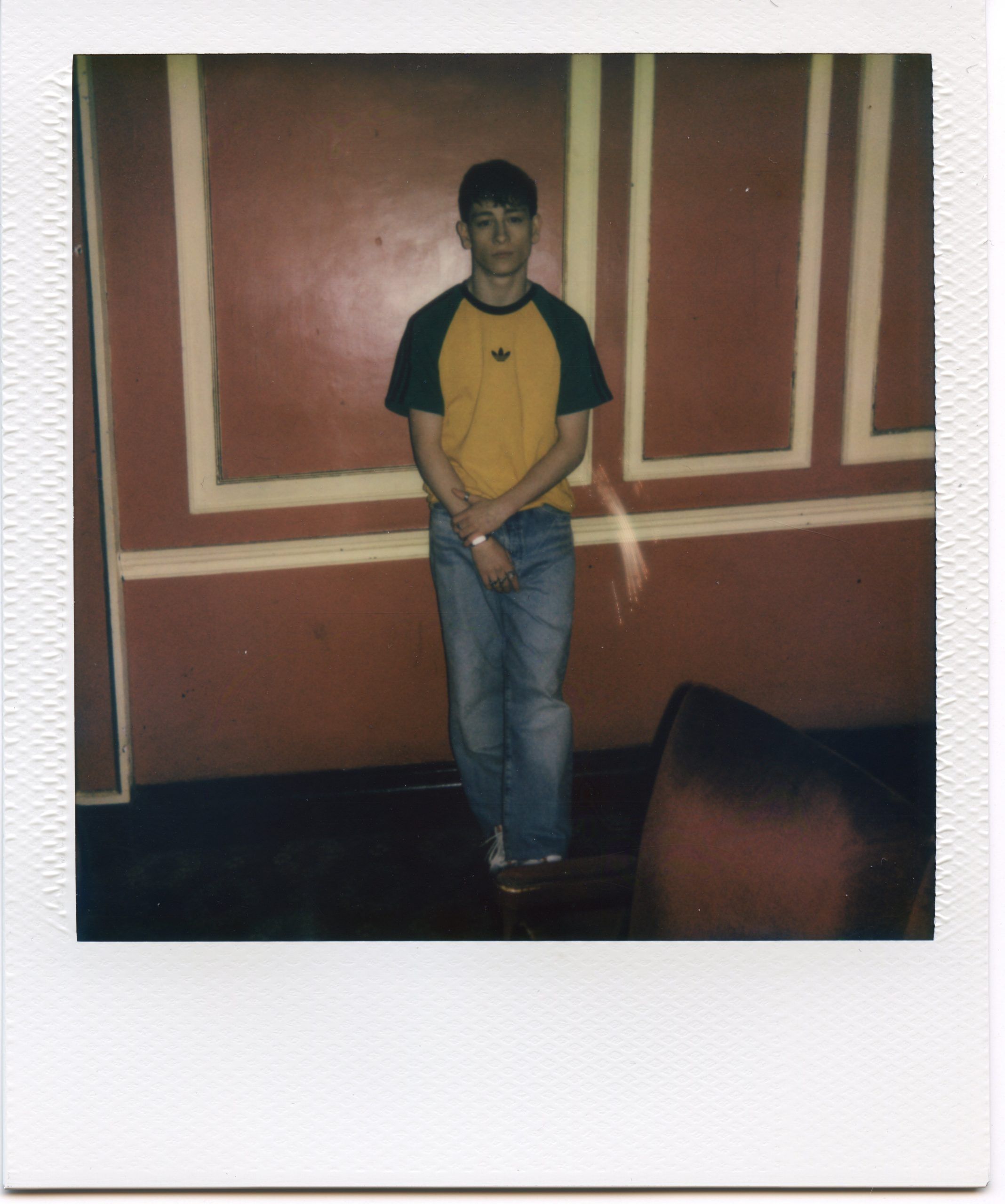
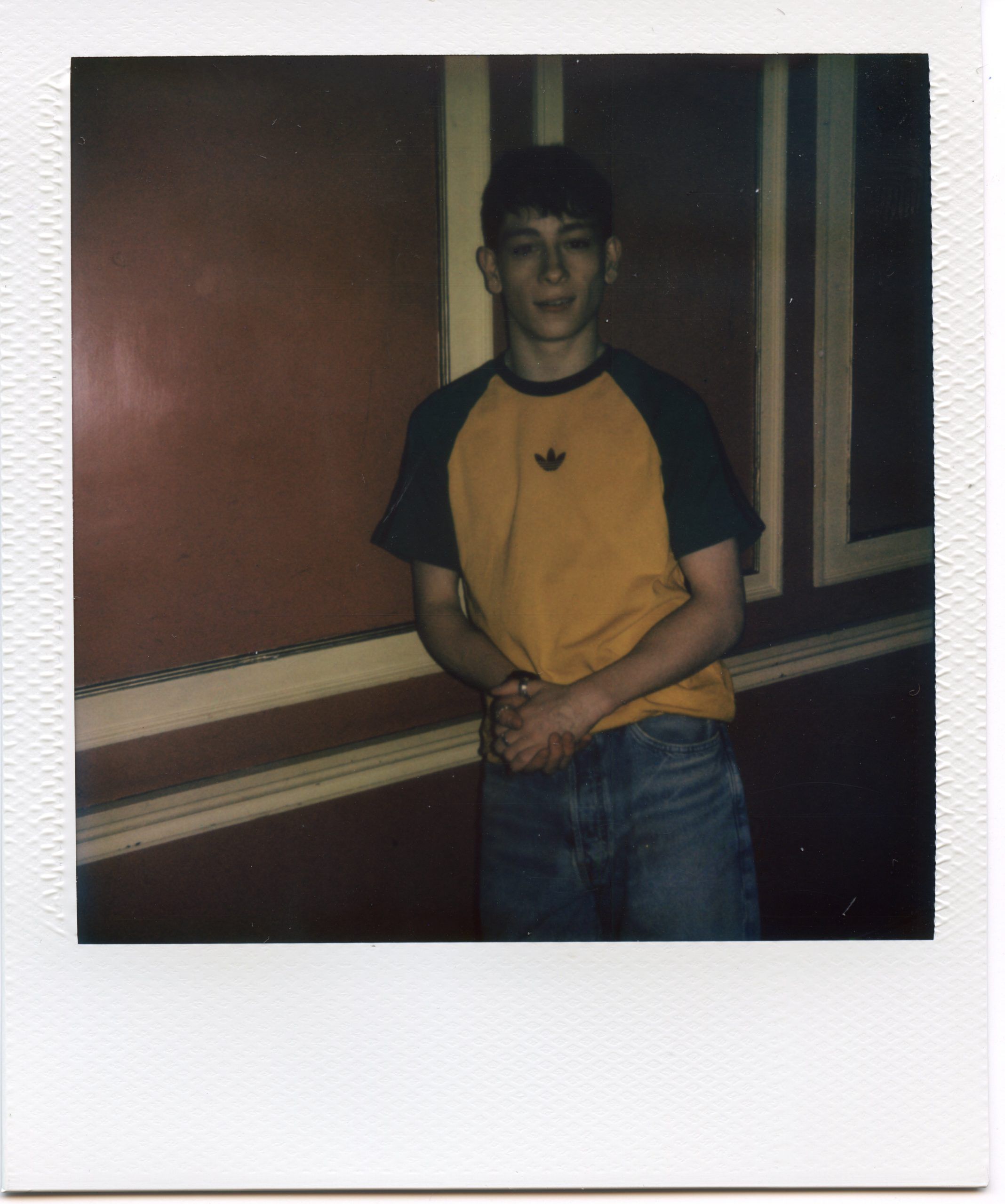
When watching it, all I could think about was the physical aspect of the show for you specifically. What was it like building your strength for that, moving throughout the show, and the recovery process afterwards?
The movement was great, I worked on it a lot with a friend. He’s one of the cast ensembles and he came on to help work on the body language of Henry and what it would be to have something inside of you. He can be quite funny and vulnerable which I think the audiences love. One of my favourite scenes is the one with the spiders and he clashes with his mother. It’s sickening because it comes from this place of love, but it’s also this twisted thing that is inside of him that he’s trying to keep down. He’s having this journey with Patty and, because the monster allowed him to feel good, he is naive to the fact that it might make him worse. Fleshing out the physical aspect of that mental journey is Stephen Daldry poking the monster. He’s got a toxic relationship with that monster but people love it.
When approaching a character like Henry who existed in the TV show and is slightly already fleshed out, what outside research or preparation do you conduct? Did you do anything else, in particular, to flesh out his character?
Well, undoubtedly, it’s a long process. It started with a little character brief — this kid who is desperate for connection is savagely loyal. The vulnerability is something that’s very, very enticing to me. I like to see how young I can go. Jamie does a spectacular job of being this killer. He’s inherently evil but you find yourself rooting for him. In the play we find out that he wants to do the right thing. He wants to be normal. It’s his little mantra. The heartbreaking thing is that this young boy is being chained up and torn apart by these outside things that he can’t control. That’s what’s so appealing to me — it’s part of watching this person grow up in an environment and going through something that he never wanted to happen. I just love losing myself on stage for three hours.
Was finding that humanity in him a big part of the process? I feel like you almost need to relate to him in some capacity — like the vulnerability aspect or him trying to become a man. Is that what ties you to him?
Yeah. Particularly for me at the time of rehearsals, I moved to London and I was in quite testy waters. I just wanted to do the right job and I wanted to hit things that I wanted. I realized all of that was such a conduit for the character that it fed into the performance. Humanity with him is scary. I think the emotional depth that Henry has is because he’s too smart for his own good and the emotions he feels people are so strong.
He just wants that connection so badly.
And doesn’t realize where it stems from. His relationship with Dr. Brenner has tentacles and it stems from this place of love, but it’s love that’s been pieced together with broken glass. It’s going to cut and it’s going to bleed. You see it throughout the play and you feel that love vibrating and seeping into the audience. You want them to win and you want them to open this portal, but you also find yourself wanting them to connect on this otherworldly level. Patrick is exceptional. There’s a point in the play where he gives me a hug and it’s clear they love each other so much.
And the audience feels like they are intriguing almost, it feels intimate.
I love making the audience question whether what they are seeing is true. It’s a fun game to play because Henry is this sweet lovely boy who then kills something, feels great about it, wants to do it again, and then goes to Patty and says, “I’m normal!”


Do you feel the audience reacting differently to things like that, like that robot relationship? Can you actually feel that energy when you’re on stage?
Yeah, you almost tap into it. It’s like mixing potions every night — you put these two things together, and you get a product. The fans are great; they’re so receptive. They want you to do well, and they want this production to be a spectacle that fits into the canon and gives them hints and clues to season five. My job is to make them feel. If I make you feel, then I’ve done it. People at the stage door try to give me a hug. It almost steps out of the West End Stranger Things thing and becomes something personal. People feel the need to come by and say, “Hey, I loved it. Great job. Can I please have a hug?” Maybe that stems from them wanting to just hug Henry or the character I play; I’ll never know. But the result is that when people scream, laugh, and feel things, they come away emotionally tired, exhausted in a good way, and satisfied with the story. It’s my first experience being on stage with people waiting for you. I mean, there was a birthday once, and they got me to sign this program and video because it was somebody’s birthday. I was like, “That is crazy.”
That I’m able to have that…
…the right word is, of course, power, but it’s not anything like that or anything I’ve seen before. I guess maybe I’m a bit of a people pleaser, but I just want to make people happy. If people jump up and down after I perform, I’m more than happy to do that [meet after the show]. It’s nice.
One of the most compelling scenes for me is at the school in the bathrooms as I think it really begins to show the severity of what Henry is going through. Is there a scene that really sticks out in your mind?
Well, there’s one really cute scene called “Auditions.” That scene is actually much harder than it looks. Henry is hiding away until he sees Patty getting made fun of. It’s like someone doing karaoke — they’re singing terribly, but they’re doing it from their heart. Maybe it’s the first time we see him try. Ever since this incident or whatever happened in Nevada, that peace of mind is lost. It’s almost pieced back together by this girl who makes him feel normal. That resonates with me. I like to think it resonates with everybody because, of course, everybody wants to be normal. Some people want to fit in, and Henry especially wants to fit in. He does this horribly nerdy thing, crumbling right before you, and you just want to get on stage and hold his hand and say, “Keep going, you’re doing great.” He’s trying to fit in and not just be a weirdo. There’s something wrong with him, but he’s not wrong. That’s what’s really sad. He wants to kill, but he’s not a killer. There are two sides to him.


How has it been working with Ella Karuna Williams, who plays Patty Newby? The rapport and chemistry between you two are very important to the characters. What was it like building that kind of relationship?
It was crazy. I did all of my workshops, got my heart set, and then they told me that the girl I was rehearsing with was actually not real. They had a girl in America who did a couple of auditions back, and they said, “Look, you’re not going to be able to rehearse with her, but we’re pretty sure it’s going to work.” They just had some instinct about her, and they were right. She’s amazing and really nice. We met on the first day of rehearsals and got to work building the relationship. It was seamless — I didn’t have to try. Sometimes in rehearsals and workshops, you find yourself doing things to impress directors, but it was interesting for me to step back and go, “Just be yourself. Chill out. Whatever you’re doing is working.” She’s got this sweetness that the whole cast takes to, and she tries her hardest. She gives her all.
The whole cast is amazing — we could spend an entire hour going through everyone and their approach to their respective roles. A friend specifically wanted me to ask about your voice — the control you have over your voice is insane without destroying your vocal cords.
I was actually talking about this with Isaac. It’s unexplainable. It’s like a physical job — your body gets used to it, like working out. You build up the muscles. When I looked at the character, I saw the difference between innocence and the killer. The killer’s voice has this specific rhythm and cadence, almost like a beast. I wondered how I could do that. Jamie has his own way of doing it so I wanted to make sure my approach was accurate. Like with everything, it can all be explained by the journey. I didn’t want to get too bogged down with it.




I spoke with Ella Lily Hyland before who I know you worked with on Silent Roar and we spoke a bit about acting to a camera versus acting on stage. I feel like it’s a basic question, but do you have to rein yourself in a bit on camera, whereas on stage, you’re a bit more free?
It’s the same process. When I was rehearsing, I tried to do what I learned from my nine months of training. It is different. There is a tiny switch where you have to let a couple of people in. For example, if you don’t talk to the camera, you talk to the person watching. If I were to single out a person on stage, it’s too introspective — no one’s getting in, and it’s selfish. Sometimes, when an audience is being receptive, like on a wild Saturday night, I have to tell myself, “You deserve my vulnerability, and I’m going to give it to you because I like doing it.” That engages people on a level where there’s chemistry. I just want you to feel what I do. It’s tough because when people hit it, there’s something that makes you go, “That’s the X factor”. Whatever that is, it’s the translation from speaking to stage — it’s that magic. Somehow, being able to let people in in a way where they feel, “That’s not bullshit.”
It does feel like a bit of a tug of war with yourself, making sure you’re not giving away too much because people won’t buy it. But if you don’t give enough, people also won’t buy it. It’s a balance.
Yeah, all cradled by Stephen Daldry and [co-director] Justin Martinthe. It’s what they demand. That’s the standard. But it was important. Everyone was on the right game. I’ve never seen two people credibly argue so well — they are like brothers squabbling away. Then they fight, fight, fight, and one of them rolls over and says, “Hey, you’re right.” Like you said, it’s about taking it apart and almost finding some hidden breaker switch. There are certain things on my course that they said we wouldn’t understand until later and I get that now. I realize it’s about putting yourself out there rather than thinking, “I’m not going to give you any of my stuff because I’m scared.”
With Henry in particular, I know so many of us feel bad for him despite him ending up being a villain. Watching him makes me think, “Oh god, if you were my brother I’d just want to make sure you’re ok.”
You know he’s not real, right? [Laughs]
Yes, Louis! [Laughs] I do! But still! You’ve just played him so well that you’re making people think like this!
[Laughs] Thank you.
The part where you pick apart the wall, I love how tangible that moment is. You feel like you’re really there.
I remember these girls gasping thinking I did it randomly, as if it was just in the moment.
I love that.
People collect them now, it’s cool. People say this is such a big show, but I think the Phoenix Theatre is the perfect theatre for it. When everyone comes out in hazmat suits, Patrick was telling me he loves staring into the eyes of some little boy at their first West End show. It’s that human connection that you get with theatre, I never expected that.
I wanted to ask you about growing up if there’s a specific book, film, or fairytale that really resonated with a child that made you want to become a storyteller in a way?
Well, my dad is a screenwriter and he made me watch all of the top 100 films on IMDB. I really love Anthony Boyle’s career and what he’s been able to do. He’s a super great guy. Anthony was talking to Jamie Dornan once and Jamie said he has so much pride in him and feels such a connection towards him. Anthony thought it was really nice. Then, he said he went to watch me and felt the same thing.
Oh, that’s so lovely.
They just saw another Irish guy trying to make it and thought, “Go on boy, you can do it.” I just thought that was so sweet.
I saw Anthony when he did Cursed Child and it’s cool to see his career explode over the last few years.
Yeah, and he just keeps it real and he puts in the work. No BS. I love that. Getting back to your question: I watched The Iron Claw and Zac Efron’s performance after the death of his brother was a standout for me. He’s being hugged by his children and wife and it’s just heartbreaking. He’s not doing a lot, it’s just known. You’d look at that scene on paper and it’d read “Cry here.” I just felt so much empathy for him as a man myself. In society nowadays you have to be this hard version of yourself that doesn’t take anything. Something else I’ve been dealing with in life recently is vulnerability on the stage and how it translates to vulnerability in how I deal with other stuff. It’s a cycle that keeps giving; I give to the stage and it gives back to me. I’m really lucky to experience it.
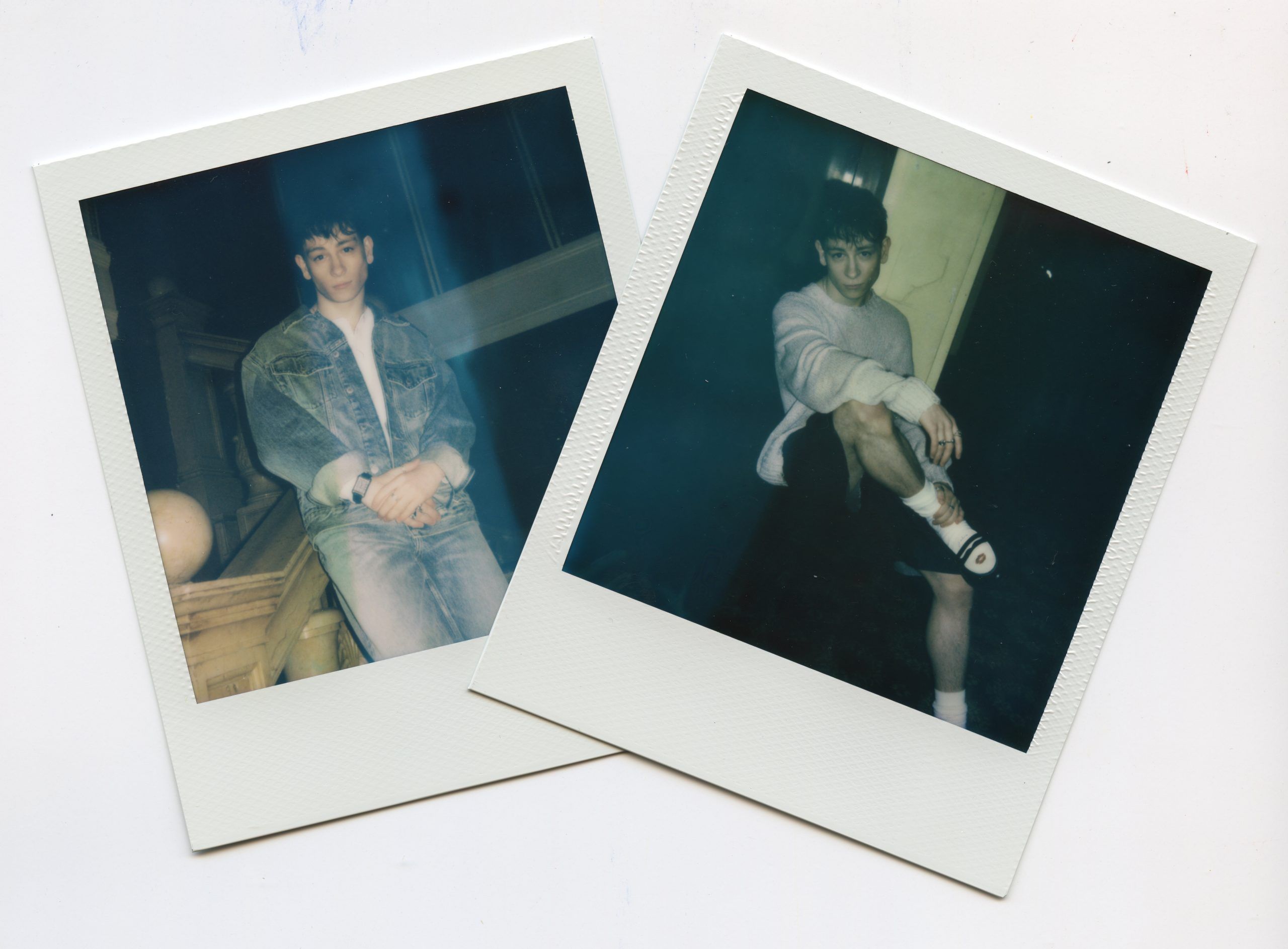
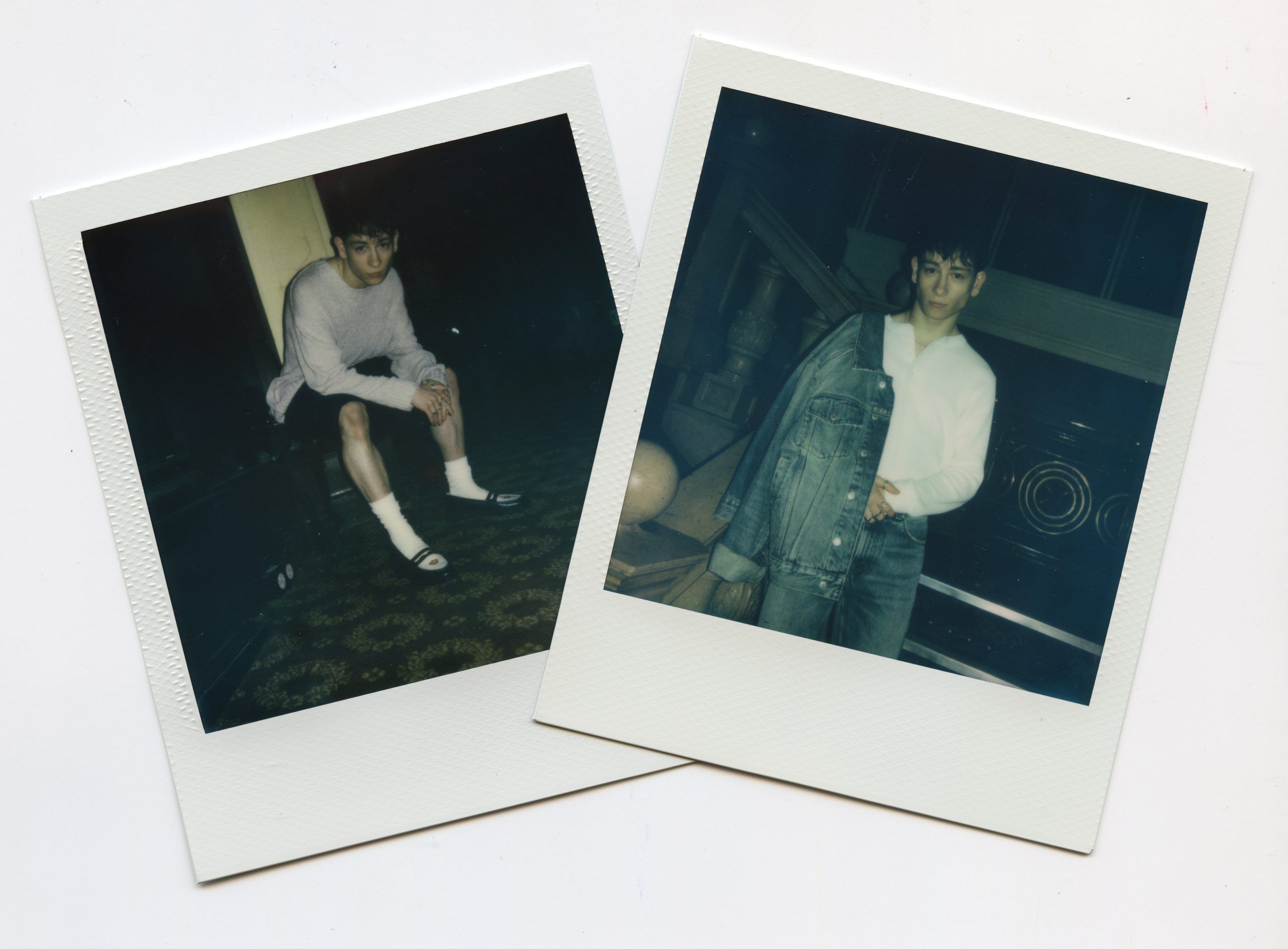
Talking about costumes and the actual physical act of putting on costumes—does it help you get into character? Does it feel almost like a uniform at this point?
Yes, and I have something to talk about here. So there is something that we do with my left hand during the play. It’s a scar that I put on my left hand and nobody sees it. It’s a prosthetic and it really, really helps even if only the people in the first few rows can see it. You can’t help but feel differently in those clothes. You borrow clothes from someone and sometimes you feel cool. In my case, with this, I just look like a little boy. The costume designer is lovely and it was actually quite a long process to figure out his clothing because we wanted to know how nerdy you could get without being too nerdy. I love my church blazer, that’s my favourite.
It’s a bit too big for him which, again, speaks to how that can inform the character for both you and the audience.
You can tell there’s a skinny little frame under there.
I know we know how Henry’s life turns out but if you could give him a piece of advice from you, what would it be?
“I’m normal, I’m normal!” [Laughs]
I love that you’re doing the Henry voice! [Laughs]
Oh yeah, you have to. I would say… The kid is so alone. I would say it’s okay to just be you. Henry almost feels like this empty vessel sometimes searching for a lighthouse and searching for some ships. I’d just tell him that it’s okay to just be you and that it’s okay to be angry.
Looking ahead, as your time with Stranger Things: The First Shadow eventually comes to an end, what are some of your acting goals?
I love characters where there is more than meets the eye. It’s so exciting to get into a character and almost not know where it’s going to go because the character doesn’t even know themselves. Getting to unravel that with a director would be great. I’ve been dying to tell somebody but I want to do the Eragon series. Maybe if I’m 50 years old and a washed up actor, I’d like to produce that. I love fantasy, I think it’s really cool. I’m a bit of a nerd myself sometimes.
Kind of like Henry? [Laughs]
Yes, kind of like Henry!




Learn more about Stranger Things: The First Shadow at strangerthingsonstage.com.
Interview Kelsey Barnes
Photography Garry Jones
Styling Kit Swann
Hair Emma Small
Styling Assistant Salem Khazl
Location Phoenix Theatre
Featured Image Credit: jacket & trousers CONNOLLY vest TIGER OF SWEDEN shoes DUKE + DEXTER


